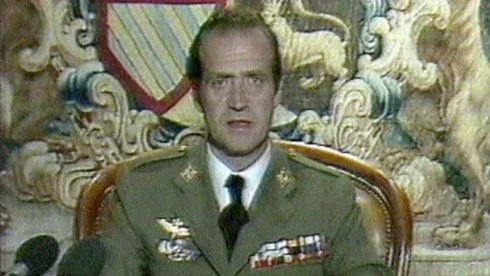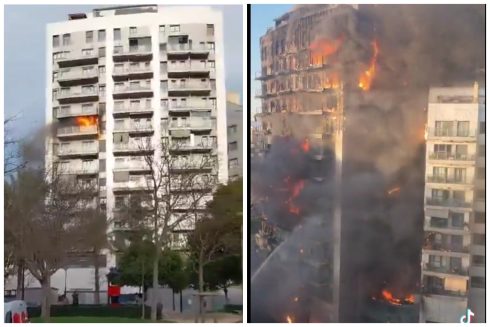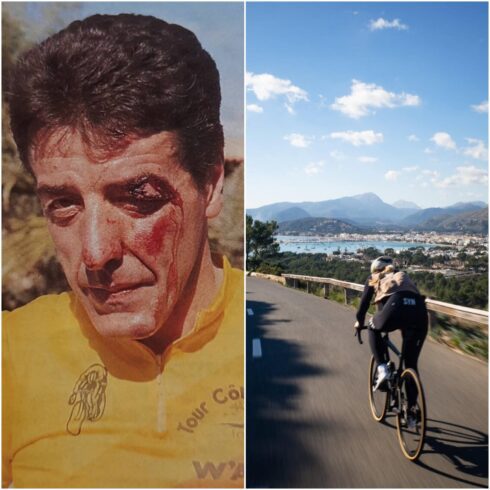DO you remember when John Lennon was murdered in New York? Ten weeks later, the month of February 1981 turned out to be historic: not because Bill Haley (of the Comets) died, or Paris Hilton was born, or Rupert Murdoch bought The Times, but because there was almost a revolution in Madrid.
Such things tend not to happen in the UK. The last attempt at an overthrow (it failed) was in 1715, when Bonnie Prince Charlie tried to seize the throne of George II.
A coup d’état is a bid to take control of the government by force. Here in Spain today, Sunday, February 23, marks the 44th anniversary of the most recent pronunciamento (to use the Spanish word).
READ MORE:
- Spain’s top court rejects bid to stop removal of medals awarded by dictator General Franco
- General Franco is STILL an honorary son of this town on Spain’s Costa Blanca
- Spain starts exhuming remains from Franco era mausoleum near Madrid
On that day (it was a Monday), a group of armed, uniformed men burst into the Cortes (Spain’s House of Commons) and roughed up some MPs.
However, democracy had put down roots, and the hapless coup went the way of Bonnie Prince Charlie.
Ask your Spanish friends about it – they call it “23F”, or, less formally, “el techo” (‘the ceiling’). The rebels fired their machine-guns into the ceiling of the Chamber: the bullet-holes are still there today!
Before we start accusing Spain of being a banana republic, we need to bear two things in mind.
First, Franco had been dead only 62 months when the coup attempt happened.
The rebels were mostly Guardia Civil officers. For them, life’s certainties had been snatched away. Under Franco, they had a good life, with guaranteed salaries and easy promotion. Now, they had to accept something they’d never bargained for – a Labour Party government!
Their civilian bosses were socialists! Second, a common concept in Spanish life which other nationalities don’t need to deal with, is a brittle sense of ‘honour’. We may salute our flag: Spanish right-wingers kiss it!
A military officer (and don’t forget – the Guardia Civil is a military force) who feels that his class or his religion are being challenged might ‘pronounce’ (rebel) – it happened all the time in the 19th century.
The coup began on 23 February 1981 when Lieutenant-Colonel Antonio Tejero, along with 200 armed Civil Guard officers, stormed the Congress of Deputies chamber in Madrid during a vote to swear-in a new President of the Government.
The officers held the parliamentarians hostage for 18 hours. King Juan Carlos was the key to it all. If he backed the coup, it had a good chance of succeeding.
After all, he was Franco’s understudy, and many in the armed forces looked to him as the heir to the Fascist tradition.
When the King made a ‘live’ broadcast at just after 1am on the morning after the uprising, the whole of Spain held its breath.

Juan Carlos said he didn’t want a coup, he was the head of a democratic state, and this nonsense must stop. The armed rebels in parliament set their MP prisoners free, and surrendered. No-one had been seriously hurt.
A few soldiers in Valencia had heard of the uprising, and “came out in sympathy”. But they, too, realising that the king wasn’t with them, gave up.
The coup attempt seems preposterous to us today, but we have to remember that Spain was not a happy country in 1981. Inflation was running at 20%, and the Basques and Catalans were trying to break free from Madrid – and were using terrorist methods.
Government ministers were coming and going with great frequency, and a lot of people were questioning whether a British-style democracy was right for the Spanish nation.
The coup itself was, in hindsight, a little clownish. Antonio Tejero, the officer who fronted it, was clearly confused when the deputy prime minister ordered him to stop (he was an army general, and outranked Tejero).
As you’ve probably guessed, Tejero went to jail. With his bicorn helmet, tiny pistol and dodgy moustache, he is as famous in Spain as (for example) Rafa Nadal.
Two things about the failed coup are not widely known: (1) Tejero is still alive – he’s 92 – and living in Andalucia, and (2) King Juan Carlos had two speeches prepared for that 1am broadcast.
If national sentiment had shown sympathy for Tejero and his men, the king’s words to his people might have gone the other way!








